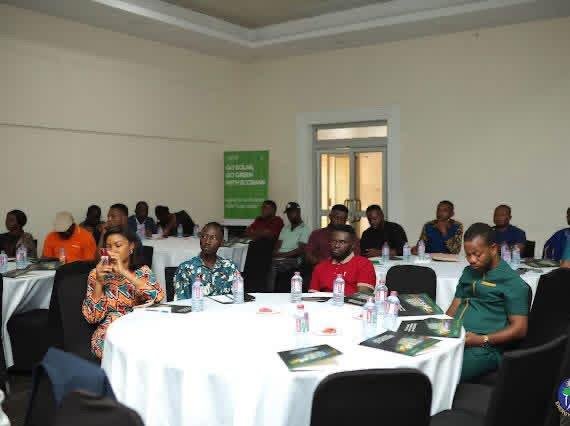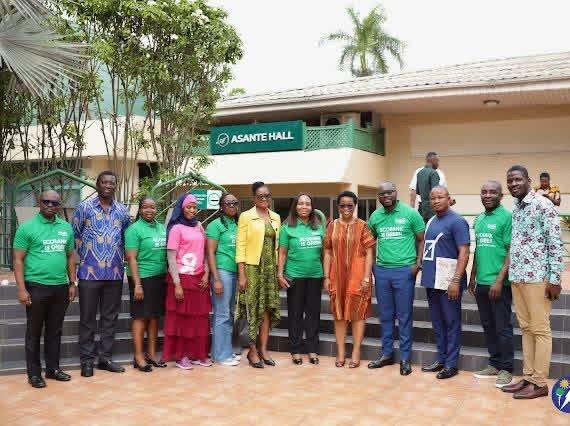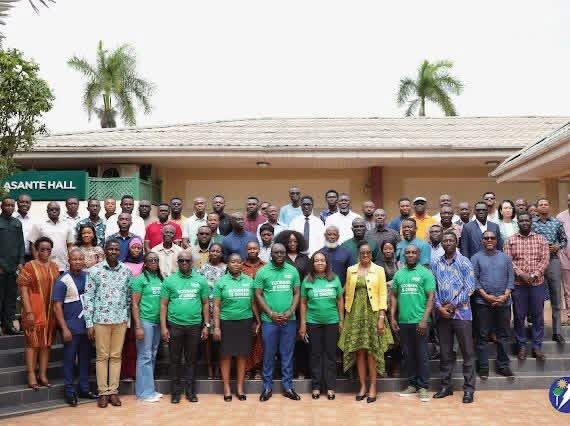The Energy Commission of Ghana has partnered Ecobank Ghana to launch the Accelerated Solar Action Program (ASAP). This ambitious $31 million initiative aims to drive the adoption of distributed solar energy among micro, small, and medium enterprises (MSMEs), irrigation cooperatives, and households across the country.
In a significant step towards a greener and more resilient energy future, the ASAP program is expected to off hope to many households in the country thereby enhancing standard of living while realizing the renewable energy and greener energy agenda.
“Beyond policy, we recognize the need to create awareness and strengthen capacity to deliver quality, safe, and affordable energy solutions to Ghanaians.”
Mrs. Eunice A. Biritwum, Executive Secretary of the Energy Commission.
The two partners, Energy Commission Ghana which is expected to lead the program’s implementation and the Ecobank Ghana as the sponsor, playing their respective roles dream to impact lives across the country.
The program’s implementation phase was officially kicked off with a vendors’ sensitization workshop held in Accra on October 3, 2025.
The ASAP program according to Energy Commission Ghana, will be implemented over the next 14 years (2025-2038), and will offer concessional financing at 15% interest for men and 14% for that of the women to support the installation of solar energy systems in the country.
The program targets 765 MSMEs (40% women-led), 19 irrigation cooperatives, and 1,617 households (40% female-headed), empowering them to harness the power of renewable energy.
Ghana Energy Commission’s Role
The Energy Commission of Ghana as established in 1997, has been at the leading-front of securing the country’s energy future.
As the country’s primary regulatory body charged with the mandate to ensure the development and management of Ghana’s energy resources, the Commission has showcased a crucial role in shaping the nation’s energy landscape.
As a result of the implementation of comprehensive policies, strategic planning, and the promotion of renewable energy sources, the Commission has been critical in terms of driving the country’s transition towards a far sustainable and reliable energy regime.
This partnership with Ecobank and the ASAP program reflects the Commission’s commitment to delivering on this objective.
Sustainable Energy Future

The ASAP program, a partnership effort between Ecobank Ghana, the Energy Commission Ghana, the United Nations Development Programme (UNDP), and the Green Climate Fund, is poised to make a remarkable impact on Ghana’s energy sector.
“The success of this program depends on scaling partnerships, affordable financing, and supportive policies to deliver a greener, more resilient Ghana.”
Mr. Talep Pierre, ASAP Program Manager.
According to the Energy Commission Ghana, the program over the 14-year implementation period, is expected to “reduce 417,000 tons of CO₂ emissions and add 30.6 MW to Ghana’s renewable energy capacity”.
This ambitious goal comments the government’s vision for a cleaner and more sustainable energy future, as articulated by the Energy Commission Ghana and the SDG7 which also geared towards affordable and clean energy for all.
Partnerships and Collaboration

The partnership between Ecobank and the Energy Commission in the ASAP program demonstrates the power of collaboration in driving the country’s energy transformation.
By leveraging the expertise, available resources, and various stakeholders’ commitment, the initiative is set to realise a solar revolution that will pave way for a greener, more resilient energy landscape.
However, the success of this program lies in scaling partnerships, affordable financing, and supportive policies to offer a greener but, more resilient Ghana.
This collaborative spirit, combined with the unwavering commitment of the two parties i.e Energy Commission and Ecobank, will be instrumental in realizing the full potential of the ASAP program thereby achieving the country’s energy future.
READ ALSO: Services Sector Dominates Ghana’s 4.5% Economic Growth Amid Industrial Slowdown






















